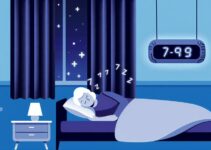Do you ever notice that when you're well-rested, you feel more energized and focused? It turns out that the quality and quantity of your sleep can significantly impact your testosterone production. But why is that the case? The relationship between sleep and testosterone is a fascinating and complex one, influenced by various physiological and hormonal factors. Let's explore the connection between sleep and testosterone production, and how optimizing your sleep can potentially lead to higher testosterone levels.
Key Takeaways
- Proper sleep is crucial for maintaining optimal testosterone levels.
- Disruptions to the circadian rhythm and sleep disturbances can negatively impact testosterone production.
- REM sleep plays a pivotal role in testosterone regulation and synthesis.
- Sleep deprivation significantly reduces testosterone levels and can have negative effects on overall well-being.
Importance of Sleep for Testosterone
Proper sleep is crucial for maintaining optimal testosterone levels, as evidenced by numerous scientific studies demonstrating the significant impact of sleep quality and duration on testosterone production. Testosterone regulation is intricately linked to the sleep-wake cycle, with testosterone levels peaking during sleep. Sleep deprivation has been shown to disrupt this cycle, leading to reduced testosterone production. In fact, a study published in the Journal of the American Medical Association found that just one week of sleep restriction led to a 10-15% decrease in testosterone levels in young, healthy men. Additionally, poor sleep quality, characterized by frequent awakenings and reduced deep sleep, has been associated with lower morning testosterone levels. This suggests that the restorative aspects of sleep, particularly deep sleep, play a crucial role in maintaining healthy testosterone levels. Furthermore, research indicates that sleep disturbances, such as sleep apnea, are linked to decreased testosterone production. Therefore, optimizing sleep quality and duration is essential for supporting healthy testosterone levels. Implementing good sleep hygiene practices and addressing any sleep disorders can positively impact testosterone regulation.
Circadian Rhythm and Testosterone Levels
During the circadian rhythm, testosterone levels peak during sleep, reflecting the intricate relationship between the sleep-wake cycle and testosterone regulation. The circadian rhythm, often referred to as the body's internal clock, plays a crucial role in hormonal balance, including testosterone production. Research indicates that testosterone levels follow a distinct pattern throughout the day, with the highest levels occurring during the early morning hours, coinciding with the latter part of the sleep cycle. This peak is essential as testosterone is integral in various physiological functions, including muscle development, bone density, and the maintenance of red blood cells. Disruptions to the circadian rhythm, such as those experienced during shift work or irregular sleep patterns, can negatively impact testosterone levels, potentially leading to imbalances and related health issues. Understanding the interplay between circadian rhythm and testosterone levels is vital for optimizing hormonal balance and overall well-being. Therefore, maintaining a regular sleep-wake cycle and prioritizing quality sleep is crucial for supporting optimal testosterone production and overall health.
REM Sleep and Testosterone Synthesis
The relationship between testosterone levels and the circadian rhythm underscores the significance of delving into the impact of REM sleep on testosterone synthesis, a crucial aspect of hormonal regulation and overall physiological function. REM (rapid eye movement) sleep, a phase marked by heightened brain activity and vivid dreams, plays a pivotal role in testosterone regulation. Research has shown that a substantial portion of testosterone is synthesized during REM sleep. This phase of sleep is characterized by increased luteinizing hormone (LH) secretion, which stimulates Leydig cells in the testes to produce testosterone. Furthermore, REM sleep benefits testosterone regulation by supporting the pulsatile release of testosterone, which is essential for maintaining overall levels of this hormone. Disruptions in REM sleep have been linked to decreased testosterone levels, highlighting the importance of this sleep phase in testosterone synthesis. Therefore, ensuring adequate REM sleep is crucial for optimal testosterone production and overall endocrine function. Understanding the intricate relationship between REM sleep and testosterone synthesis provides valuable insights into the complex mechanisms governing hormonal regulation within the body.
Sleep Deprivation and Testosterone Reduction
Sleep deprivation often results in a significant reduction in testosterone levels, impacting various aspects of physiological function and endocrine regulation. The relationship between sleep quality and hormonal balance, particularly testosterone production, is crucial for overall health. When you experience sleep deprivation, it disrupts the delicate balance of hormones, leading to a decrease in testosterone levels. This reduction in testosterone can have wide-ranging effects on the body, affecting everything from muscle mass and energy levels to mood and cognitive function. Below is a table highlighting the impact of sleep deprivation on testosterone levels:
| Effects of Sleep Deprivation on Testosterone Levels |
|---|
| Decreased testosterone production |
| Disrupted hormonal balance |
| Impaired physiological function |
The table emphasizes how sleep deprivation can lead to reduced testosterone production, disrupting the hormonal balance and impairing various physiological functions. By understanding the impact of sleep deprivation on testosterone levels, individuals can prioritize adequate sleep as a key factor in maintaining hormonal balance and overall well-being.
Tips for Improving Sleep to Boost Testosterone
Improving sleep quality is essential for optimizing testosterone production and maintaining hormonal balance, which can be achieved through implementing effective sleep improvement strategies. To boost your testosterone levels, consider the following tips:
- Prioritize Sleep Hygiene: Create a sleep-conducive environment by keeping your bedroom dark, quiet, and cool. Establish a consistent sleep schedule, and avoid stimulating activities before bedtime.
- Limit Screen Time: Reduce exposure to electronic devices, as the blue light emitted can disrupt your circadian rhythm and hinder the production of melatonin, a hormone crucial for quality sleep.
- Practice Stress Management: Chronic stress can negatively impact sleep and testosterone levels. Engage in relaxation techniques such as meditation, deep breathing, or yoga to alleviate stress and promote better sleep.
- Avoid Stimulants: Limit caffeine and alcohol intake, especially close to bedtime, as they can interfere with your ability to fall and stay asleep.
Frequently Asked Questions
How Does Sleep Quality, as Opposed to Just Quantity, Impact Testosterone Production?
Improving sleep quality through good sleep hygiene, stress reduction, and relaxation techniques can positively impact testosterone production. Exercise also plays a role in maintaining healthy testosterone levels. Prioritize quality sleep for optimal hormone balance.
Can Certain Sleep Disorders, Such as Sleep Apnea, Have a Significant Impact on Testosterone Levels?
If you have sleep apnea, it can significantly affect your testosterone regulation. Sleep disorders like these can disrupt hormone production, leading to lower testosterone levels. Understanding the impact of sleep on hormones is crucial.
Are There Specific Dietary or Lifestyle Factors That Can Improve Sleep Quality And, in Turn, Boost Testosterone Production?
Making dietary adjustments and lifestyle changes can improve sleep quality, leading to a boost in testosterone production. Quality sleep is crucial for hormone regulation, and incorporating healthy habits can positively impact your hormonal balance.
What Role Do Naps and Overall Sleep Patterns Play in Testosterone Production?
Improving sleep patterns positively impacts hormonal balance, including testosterone production. Naps can benefit your circadian rhythm, enhancing overall sleep quality and potentially boosting testosterone levels. Consistent, quality sleep supports optimal testosterone production and overall health.
Are There Any Natural Supplements or Remedies That Can Help Improve Sleep and Support Healthy Testosterone Levels?
Natural supplements and sleep remedies like melatonin and valerian root can improve sleep quality, supporting healthy testosterone levels. Sleep hygiene, including a consistent sleep schedule, and dietary factors such as magnesium intake, also play vital roles.
Conclusion
In conclusion, it is clear that sleep plays a crucial role in testosterone production. The scientific evidence suggests that maintaining healthy sleep patterns, particularly during REM sleep, is essential for optimal testosterone synthesis. It is important to prioritize good sleep habits in order to support overall hormonal balance and promote overall well-being. So, make sure to give yourself the best chance for testosterone production by getting the right amount of quality shut-eye.



